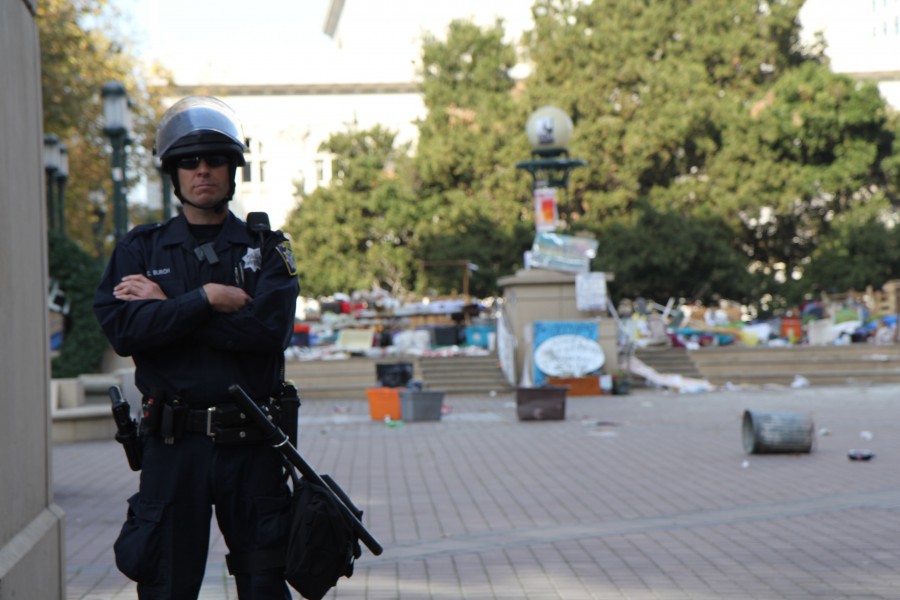By: Nishat Kurwa
At a general assembly of Occupy Oakland protesters last week, a surprising number of people said they were there to thank the police.
They said after Tuesday night's tear gassing and beating of demonstrators, their movement had grown from the hundreds to the thousands. The violence was galvanizing, and Occupy Oakland had gone viral. Like an old record skipping, Oakland was again making national news for its relationship with the police.
Civil rights attorney John Burris, with his partner, has spearheaded most of the civil suits against the department over the last decade. In 2003, after violence against anti-war protesters at the Port of Oakland, he helped force the department to write a new Crowd Control policy. It prohibited the use of beanbags and rubber bullets, and required any use of tear gas to be judicious. Oakland's interim police chief says the department is investigating the role of assisting agencies in whether any of these methods were used last week. But Burris said ultimately, the buck stops with Oakland. "Unfortunately, those guidelines were not followed. The officers, when they had an opportunity to comply with them, did not do so," he said. "So it raises a real question about whether there's a commitment and ability to follow agreements that have been imposed."

An officer stands guard near an evacuated Occupy Oakland camp.
When it comes to everyday life in the city, particularly with regard to its black and brown residents, the Rough Riders case is the one that should have shifted the paradigm. The Riders were a shadowy sub-squad charged with racially profiling and beating suspects, planting evidence and falsifying records. In a civil lawsuit nearly a decade ago, the police department entered into a settlement that was supposed to force an overhaul of its policies. But even after several extensions of the agreement, the department has still not met the terms of the agreement. Just three weeks ago, a district court judge found there are still significant tasks related to the agreement that the Oakland police department hasn't completed. He's threatened a federal takeover of the department.
Abel Habtegeorgis with Oakland's Ella Baker Center said former police chief Anthony Batts, who recently resigned, started out on the right foot when he initiated periodic community forums. "Just being able to see police officers as opposed to seeing them after something happens, when they're raiding your house, or screaming at you for something that you did, or didn't do; that investment, in community building, of that trust...is exactly what this city needs," he said.
But those forums were a flash in the pan, and Batts joined the parade of exiting chiefs when he resigned two weeks before the raid on the Occupy Oakland encampment.
Oakland's police department declined to go on tape for this story. The ACLU and the National Lawyers guild have filed an urgent request for documents that they say would shed light on the decisions the police made during last week's Occupy Oakland raid and protests.
Had it not been for those events, broadcast worldwide, the department's history and culture may have remained a local story. For now, the Oakland Police Department's every move is being watched by international press and protesters, perhaps providing a catalyst to finally take its record off repeat.
Originally published on Turnstylenews.com, a digital information service surfacing emerging stories in news, entertainment, art and culture; powered by award-winning journalists.